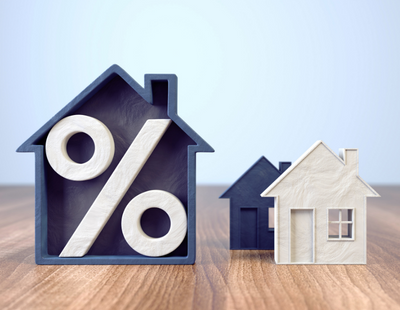New figures showing no slowdown in the rate of private rental inflation is just additional “misery” for tenants, a leading financial analyst says.
This week the government announced that average UK private rents increased by 8.6% in the 12 months to July 2024, unchanged from in the 12 months to June 2024.
Average rents increased to £1,319 (8.6%) in England, £748 (7.9%) in Wales, and £965 (8.2%) in Scotland, in the 12 months to July.
London was the English region with the highest rents inflation, at 9.7%. This was unchanged from the 12 months to June and was below the record-high annual rise of 11.2% in March 2024.
Rents annual inflation was lowest in the North East, at 6.1% in July 2024. However, this was a joint record high for the North East and was up from 5.9% in June 2024. In July 2024, the average rent was highest in London (£2,114) and lowest in the North East (£676).
Sarah Coles, personal finance chief at business consultancy Hargreaves Lansdown, says: “Rental misery is piling on the pressure for another month, with rents up an eye-watering 8.7%. It’s not quite as bad as the record high back in March, of 9.2%, but that’s like consoling someone who has just broken a leg by telling them it’s not as bad as breaking two.
“Landlords continue to sell up in the face of higher mortgage costs, tougher tax rules and the likelihood of more stringent legislation.
“Meanwhile, growing tenant numbers make it harder to get hold of a property, even if you’re prepared to pay sky-high prices. It’s difficult to see how things will ever get any better.
“For a renter, their greatest hope may be to get onto the property ladder and out of the rental market altogether. This is a massive ask at a time when rents are soaking up such a huge proportion of your income.”
Separately, a survey from the Mortgage Advice Bureau says that nearly a third (32%) of prospective buyers are delaying their property purchases, with the number rising to 36% for first time buyers.
The research has found that increased housing prices (39%), higher interest rates making monthly repayments unaffordable (29%), and the cost-of-living crisis (28%) are among the key factors impacting homebuying plans. The challenge of higher interest rates is significant, with one in four (25%) prospective buyers and 26% of first-time buyers finding it harder to get their mortgage approved due to increased costs.
A fifth (20%) of prospective buyers have taken on more than one job to cope with the financial strain, with this figure slightly higher for first time buyers (22%). Additionally, one in six first time buyers (17%) have had to arrange longer mortgage terms than initially planned. The same number (17%) have also found it necessary to borrow more to afford their homes.
Other contributing factors include the cost-of-living crisis impacting credit scores (affecting 21% of prospective buyers and 25% of first-time buyers), and concerns over job security or potential redundancies (affecting 12% of prospective buyers and 13% of first-time buyers).
MAB also claims: “Rent increases are also exacerbating the situation, making it more difficult for 23% of buyers overall, and a significant 36% of first-time buyers, to save for a deposit.”
Only a small fraction of prospective buyers (9%) and even fewer first-time buyers (5%) report that nothing has impacted their homebuying plans.














%20-%20IMAGE%20Client%20Accounting%20%E2%80%93%20what%20are%20your%20options.jpg)

%20(002).png)
.png)
.png)

%20(002).jpg)







Join the conversation
Jump to latest comment and add your reply
Generation Rant and Shelter No One please take note. Your years and years of incessant whingeing, whining and demonisation of private landlords has come to fruition.
Well done you morons.
& why are rents so high?
- selling off social housing with no policing of the legal obligation to replace each sold unit 1:1 over the last 40 years causing a shortage
- HMO licensing for smaller homes ‘driving standards (& rents) up’ by increasing fees to landlords
- Section 24 tax regulations making PRS unprofitable for many landlords or would-be landlords
- additional SDLT for landlords
- the Tenant Fees Bill 2019 increasing fees to landlords
- 5 year long threat of S21 ban and other anti-landlord ideas…
Is it me or is it pretty clear the increase in rents directly relates to Govt policy?
Rents are just keeping up with inflation. Wages are up 38.7% since 2016, whereas, rents are only up 25.8%, with overall inflation 30.6%. So actually, in real terms rent is cheaper than 2016. So, like Sarah Cole’s said, it could be worse, you could break both legs.
They are not building enough houses, like gold or bitcoin, with a finite supply, prices are only going one way in the long term. Wages up 38.7% people can afford more, train drivers, GPs, doctors … all getting pay rises, people will be able to afford more, pay higher rents or mortgages. Don’t wait to buy property, buy property and wait.
This data seems way off. I don't anyone (other than entrepreneurs/directors) who have seen anything like 40% wage growth in the last 8 years!? Median UK salary '23 £35k in '10 this was £26k represents a 35% uplift over 14 years. The figures are hugely skewed by the wealthy earning more than ever before- why median's are far more accurate and relevant. As both a tenant of 26 years and a letting agent of 22- affordability has never been this tough for renting.
If you look at London- median rent is £2120 pm or £25k per annum whilst median wage is just £44k meaning that median rents account for 57% of median gross income. When you consider the typical take-home pay is just £34,830 this means median rents account for 73% of take-home pay.
I think this quite clearly shows rents are substantially more unaffordable than they have ever been and make it impossible for anyone to save towards a typical 10%+ deposit.
Hey Kristjan, don’t shoot the messenger, you’ll need to take up your grievances with the ONS.
What this tells me, if there is an opportunity to put rents up another 4.8% to keep up with inflation.
When Osborne announced S24 I and a friend put together a website called Say No To George. We forecast everything we see going on now such as a shortage of rental accommodation, people moving to smaller homes and/or cheaper areas, cutbacks in maintenance budgets AND spiralling rents. We were laughed at by many people who told us rents were already unaffordable and they couldn't possibly go up any more. Yet here we are.
Please login to comment